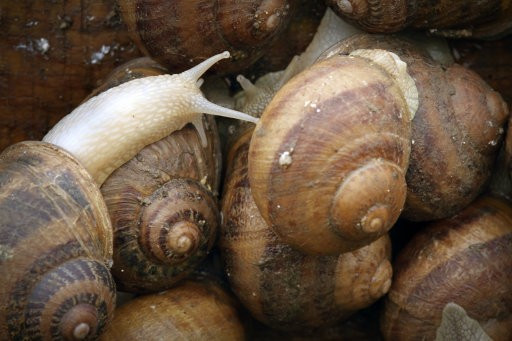Global Warming Can Kill Snails

A team of researchers from South Australia's Flinders University have discovered that the threat of global warming could kill off snail populations in the world.
Apparently their study indicates that increasing ambient temperatures could lead to a proportionate increase in the body temperature of most animals and particularly mobile organisms on rocky beaches.
The study's lead scientist, Coraline Chapperon, said the research was based on the fact that a number of other studies in the world were driven by speculation that global warming is a result of rising air temperatires. She contends that siuch a yardstick does not accurately reflect the body temperature of most animals.
The team of researchers spent three years studying the temperature of the snails and their ability to cope with extreme conditions. The results were not encouraging.
As part of the experiment, the researchers took a series of thermal images of marine snails and rocks from two different habitats - a rock platform and a boulder field, over the course of a summer and autumn at Marino Rocks, to quantify variances in body temperature and snail behaviour.
"A lot of current global warming research uses air temperature as a proxy for animal body temperature - so if it's 31 degrees at the beach they'd say all the animals at the beach are 31 degrees but that's not the case," said Coraline Chapperon, a postgraduate student at Flinders.
"Even the same rock surface varies in temperature at a very small spatial scale at one time which is more pertinent to the biology and ecology of intertidal animals than air temperature," she added.
"As such, we need to consider factors like rock temperature and the individual physiology and behaviour of animals in our climate change models, and look at it on a much smaller scale," she explained.
© Copyright IBTimes 2025. All rights reserved.





















